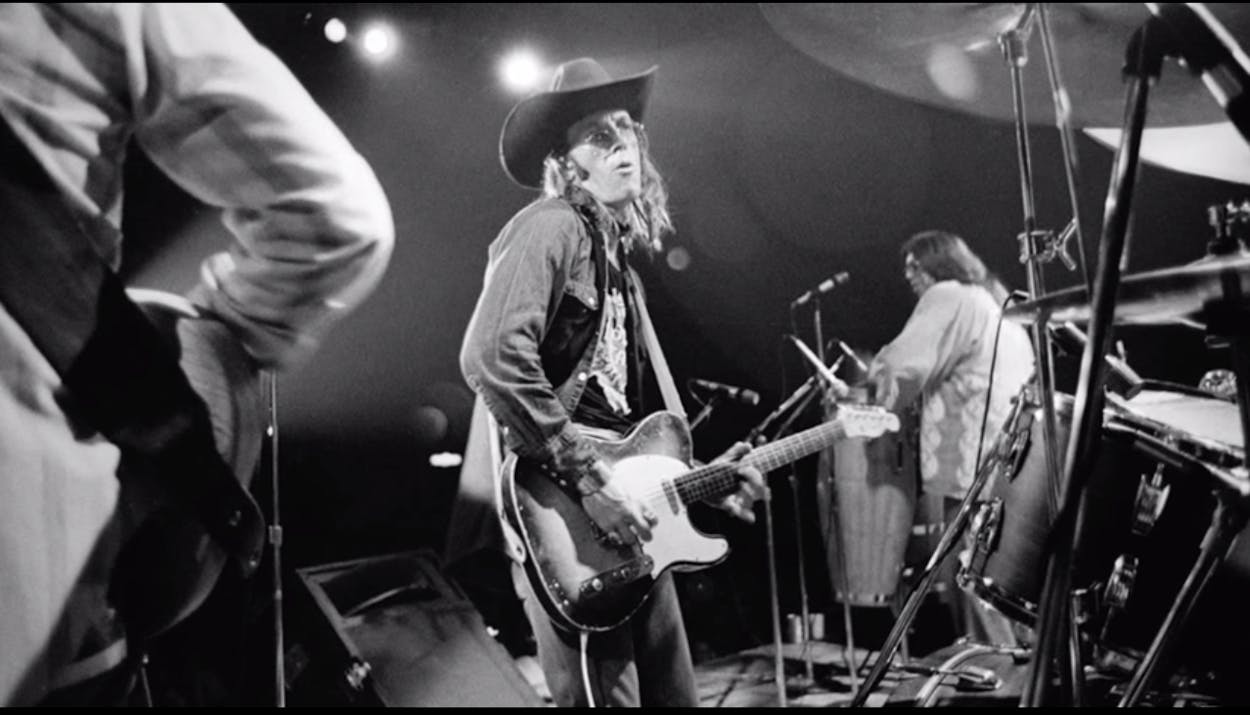Doug Sahm was many things to many people. He was a musical polymath with a cool streak as long as his hair. He sang with soul and played the steel guitar, mandolin, fiddle, and piano. He was deft at country, blues, and rock and roll—and he invented Tex-Mex, a hybrid of Tejano, conjunto, and rock. He blossomed early, performing on the same Austin stage as Hank Williams—as an eleven-year-old. He relocated his band, the Sir Douglas Quintet, to San Francisco for the Summer of Love, in 1967, already an affirmed marijuana connoisseur. He discovered Flaco Jiménez, national treasure and the accordionist in the Texas Tornados, the San Antonio band that Sahm formed in 1989. But perhaps most importantly, Doug Sahm was the undisputed champion of the groove. The documentary Sir Doug and the Genuine Texas Cosmic Groove will debut at this year’s SXSW, a little more than fifteen years after Sahm died of a heart attack in his sleep, at age 58.
See the exclusive premiere of the trailer below:
The film is the directorial debut of Joe Nick Patoski, longtime Texas Monthly writer, author of books on Stevie Ray Vaughan, Selena, and Willie Nelson, and host of the Texas Music Hour of Power show on Marfa Public Radio. Patoski has covered the arts and culture in Texas for forty years and is working on a book about what made Austin, Austin. He shared the following thoughts on Sahm and the movie.
On superstardom:
“To me, this is the one story I haven’t been able to tell. It’s the great Austin untold story. It’s certainly—if you want to understand San Antonio culture, this is that story. In my mind, no single individual could play all the indigenous forms of Texas music—not just well and technically expert, but authentic. Doug is that guy. I don’t admire any single musician like I admire him. ’Cause he could do it all. All these things he could do so well that probably his greatest liability was knowing too much. Because if he could have just done one of these forms of music and played it well—stay on message, play the same thing over and over—he probably would have been a superstar that everybody would have known.”
On the groove:
“The groove is pretty much Doug’s worldview. When things were good, when he’s hanging at Barton Springs, when he’s playing Soap Creek Saloon, in Austin, when he’s with all his buddies, it’s a groove. When someone calls and says it’s time to make a record, we’ve got a deal here, or someone says, it’s last call, you guys have to shut this down—that’s the groove tax. Those are groove busters. And his son, Shawn, does a very good job in this film of breaking down the groove. All throughout this, we were always asking people, so what’s ‘the groove’? And everybody helps define the groove. But Doug had the groove. And it’s, like, cool. You can’t buy cool. Either you are cool or you’re not—that’s the groove in a nutshell. A lot of people just will never be able to attain groove consciousness.”
On Austin:
“Doug was the organizer of what blew up into the Austin music scene. Most people know the Willie story. And that is indeed justified as epic. But those people that know that story don’t know that this is kind of the story behind the story. Doug made Willie possible in so many ways. Doug was the first guy to sign to Atlantic Nashville, to Jerry Wexler. The second signing was Willie Nelson. Start thinking about that. In Austin in the early seventies, I can confirm, as a witness, Willie was a big deal because he was a successful songwriter and he had a few country music hits. But he was Nashville. Doug was the only one in Austin that had hit records and basically had been around the world and could impart knowledge to everybody. He had been to the mountaintop. He’d been to San Francisco, which in Austin was heavy-duty validation.”






